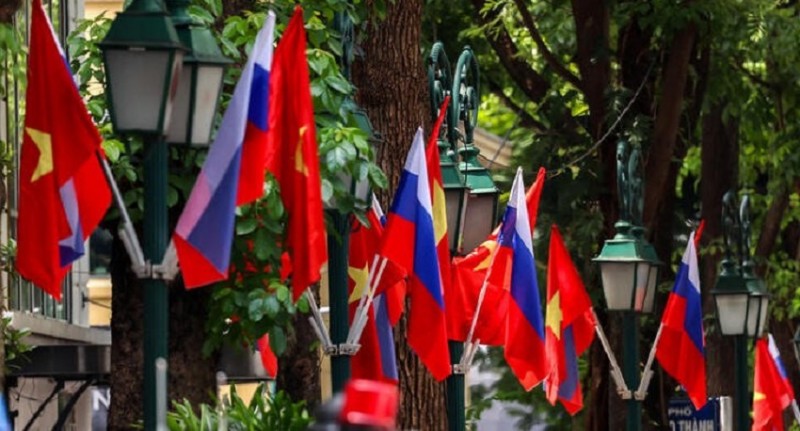
Russian President Vladimir Putin has arrived in Hanoi, Vietnam, marking the second stop of his East Asian tour. This visit, following his recent trip to North Korea, underscores the continued diplomatic support Russia enjoys in this region.
The United States has criticized Putin's visit, arguing that it provides him a platform to promote his aggressive actions in Ukraine. Despite this, Vietnam values its historical ties with Russia, while also working to strengthen its relationships with Europe and the US.
In Ba Dinh, Hanoi's political hub, a five-meter high statue of Lenin stands prominently. Every year on Lenin's birthday, senior Vietnamese officials lay flowers and bow their heads in front of this statue, a gift from Russia when it was still the Soviet Union. This gesture highlights the long-standing and loyal relationship between Vietnam and Russia, dating back to the 1950s when the Soviet Union provided vital military, economic, and diplomatic support to North Vietnam.
After Vietnam's invasion of Cambodia in 1978, which led to isolation and sanctions by China and the West, the country heavily relied on Soviet assistance. Many older Vietnamese leaders, including the powerful communist party secretary-general Nguyen Phu Trong, studied in Russia and speak the language, further cementing these ties.
Today, Vietnam's economy has flourished through global market integration. While Russia has lagged behind China, the US, and Europe as a trading partner, Vietnam still predominantly uses Russian-made military equipment and collaborates with Russian oil companies for exploration in the South China Sea.
The invasion of Ukraine posed a diplomatic challenge for Vietnam, but it has managed to navigate this by abstaining from various UN resolutions condemning Russia while maintaining good relations with Ukraine and even sending aid to Kyiv. Thousands of Vietnamese who studied and worked in Ukraine also share this Soviet-era legacy.
Vietnam's foreign policy, known as "bamboo diplomacy," aims to be friends with everyone while avoiding formal alliances. This approach has allowed Vietnam to enhance relations with the US, a former adversary, in pursuit of lucrative export markets and to balance its close ties with neighboring China.
The US objects to Putin's visit to Vietnam, arguing it undermines efforts to isolate him internationally. However, this stance may not come as a surprise given Vietnam's historical connections with Russia. Public sentiment in Vietnam towards the Ukraine war is more ambivalent than in Europe, with some admiration for Putin as a strongman defying the West and skepticism towards US and European claims of upholding international law.
This ambivalence is echoed in other Asian countries like Thailand, where public opinion on the Ukraine war is divided. Despite historical ties with the US, Thailand maintains close relations with Russia, valuing the significant contribution of Russian tourists to its economy.
The future of Vietnam's camaraderie with Putin remains uncertain. Vietnam is already exploring alternative sources of military equipment, but reducing its dependence on Russia will take time. Recent high-level resignations within the communist party suggest internal rivalries and potential shifts in the country's direction. However, Vietnam's ambition to be friends with all and enemies of none remains unchanged.